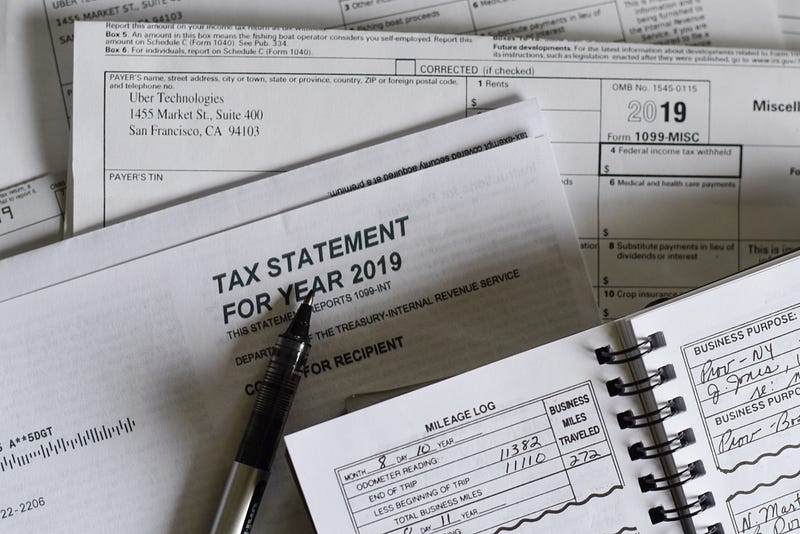Some things you can only do during a calendar year
the year comes to a close, some people forget that there are certain things that have an expiration date.
I had to learn that that is true both privately as well as for small businesses.
Larger companies typically have an accounting department that is constantly looking at the money (revenue) that comes in and the money that goes out (cost) and files taxes and fees and all kinds of stuff with the tax authorities, unemployment insurance providers, health insurance providers, etc.
When you find yourself in the role of an employee, all you really need to check is your paystub. Did you get what you agreed to, were income tax, retirement contributions, insurances, etc. paid for you? That’s it.
If you are a small business owner you might be in a situation somewhat between a large company and an individual employee.
You are still required to report everything, pay for everything, be aware of what money comes in the door, but it’s mainly on you, as the owner. Yes, you have a bookkeeper and hopefully a CPA. Still, you have to make sure that the business keeps running.
Regardless if you are an employee or a small business owner, there are a few things we could forget and then be unhappy about this time of the year.
This is not legal or tax advice but suggestions that have helped me in the past and might help you, especially this year, as it was different than any other before.
In 2020 for employees, it is mainly all the programs that were in place for the first time for many people that could impact your taxes. I mean things like the $1200 from the CARES act, or unemployment payments plus federal money in case you were furloughed, etc. You want to make sure that everything has been tracked, accounted for, and monitored. In case you have a side gig, make sure that you tracked everything and if you needed tools or something that cost you expenses, have that tracked as well.

For small business owners like myself, I have learned over the years that it is a good idea to have three meetings with your CPA per year. The first time around April to check that the plans for the year have gotten off to a good start and what was expected is happening.
The second after the summer break, maybe in September to check how the year has gone so far and what can be done to make any corrections.
The third and probably most important one is around this time (Nov/Dec).
Now you know how the year went and one last month is not going to make a massive difference. What will still make a big difference are things you can only do while the year is still running.
Such as:
- Any furniture you need to do your job — especially if you are now mainly working from the home office. That expense counts on your taxes.
- Any equipment that you potentially need or need to replace. Things like a laptop, monitor, scanner, printer, mobile phone, lighting in case you started video recordings or to have better video conferencing calls, a good microphone to improve audio quality, etc. Those expenses count.
- Any services that can still be finished and paid for on or before December 31st. Those include upgrade/updates to your website, additional support services like calendaring tools, memberships for credit card payment services, memberships to platforms you use for your business or as a service to your clients, etc. All of those apply and if you really want to make an impact, you probably want to go for annual programs rather than monthly payments.
- Since we help people with investments, you might also want to consider what’s in our accumulation account and discuss with your CPA if it is better to have the closing for purchase in 2020 or rather wait till 2021.
- There are a lot of other things, but you would also take a look at all the events that you attended. Sometimes we forget that many events that we used to travel to are no longer happening that way, but we still paid fees to attend virtually.
- Although it might not have an immediate impact on your taxes, you also want to take a look at any retirement savings accounts you have. Due to the pandemic, there are some special provisions about fines that have been removed for 2020 and amounts you could take out. This mainly applied to people who used to be employees and still have a 401K or IRA account and now own a business. This year is probably the rare exception where you can take out funds and invest in better assets without having to pay a fine. Get expert advice about how to do that, but don’t let the opportunity expire if it applies to you.

In summary, you should consider anything that is deductible and discuss the impact of when exactly to spent money — still this year or better early next year, with your CPA.
One thing that hasn’t been invented yet is a lever that allows you to turn back time and get you back to the past.
Therefore, be aware of all the things that benefit you financially each year and make sure you maneuvered and adjusted your finances to take maximum advantage before expiration day and the end of December 31 hits and resets the clock/calendar.
For a guide on how to focus your mindset for success, Download your free mindset manual





